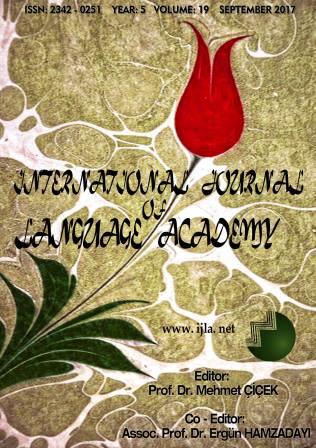Author :
Abstract
Osmanlı’da fetvâların da manzum biçimde verilmeye başlanması bu manzumelerin özgün bir tür olarak Türk edebiyatına dahil olmasına sebep olmuştur. Fetvâ kelimesi yiğit, genç, kavî anlamına gelen fetâ kökünden türemiş ve müşkil bir meselenin güçlü cevapla halledilmesini ifade etmiştir. Osmanlı’da iftâ, yani fetvâ verme işi merkezde şeyhülislâm, taşralarda ise müftüler tarafından icra edilmiştir. Osmanlı’da fetvâ verme işi önemli bir halk hizmeti olarak görülmüş ve zor bir meselenin hükmü müftü veya şeyhülislamca kaynaklarından araştırılarak ortaya konulmuştur. Bu sebeple müftü veya şeyhülislâm için hallâl-ı müşkilât (güçlükleri çözen) şeklinde bir ifade kullanılmıştır. Osmanlı fetvâlarının çok büyük bir kısmı Türkçe ve mensur olarak yazılmış, ancak az miktarda manzum hâlde yazılanlarına rastlanmıştır. Öte yandan Arapça verilen fetvâ sayısı da önemli bir sayıya ulaşmıştır. Osmanlı’da manzum fetvâlar Divan şairleri arasında özel bir yeri bulunan şeyhülislâm veya müftülerce yazılmış olup Bostanzâde Muhammmed Efendi de bu şeyhülislâmlardandır. Kendisi daha ziyade, Osmanlı’da kahve üzerine yapılan tartışmaları bitiren fetvâ ile tanınmıştır. Onun nazmen verilmiş fetvâlarından tespit edilebilen dört tanesini daha önce tanıtmıştık. Bu makalede ise daha sonra ortaya çıkan manzum bir fetvâsı tanıtılmaktadır.
Keywords
Abstract
The introduction of fatwas in the form of verse in the Ottoman Empire led to the fact that these poems were included in Turkish literature as a genre. Fatwa word, comes from the root feta in the brave, young, strong sense and it’s solution with a strong answer to a difficult problem. The work of giving fetvah in the Ottoman Empire was performed by the shaykh al-Islam in the center and by the mufti in the provinces. This business has been seen as an important public service; by the mufti or shaykh al-Islam a difficult question of sources were searched and were being revealed. For this reason, an expression for the mufti or the shaykh al-Islam is used hallal-ı müşkilat. A very large part of the Ottoman fetvas was written Turkish and as prose and in a small amount it was found as poetry. On the other hand, the number of fatwas given in Arabic reached an important number. The poetry fatwas in the Ottoman Empire were written by shaykh al-Islam or muftis, which has a special place among Divan poets. Bostanzâde Muhammed Efendi is also one of these sheikhs. He was even more famous with his fatwa, which ended the discussions on coffee in the Ottoman Empire. We have earlier introduced four of his poetry fatwas. In this article, his one poetry fatwa which was found later is introduced.





